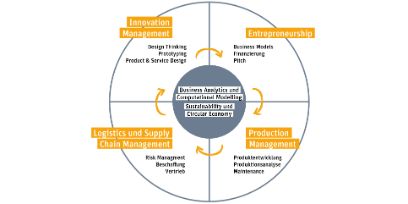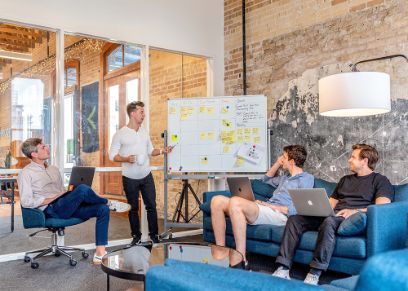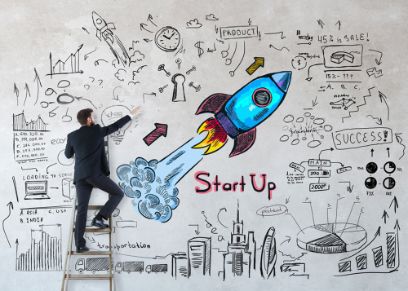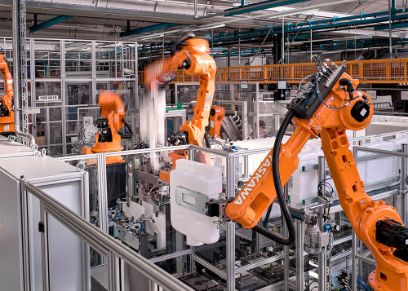Service portfolio
We offer analyses, research and consulting projects, impulse presentations, workshops and coaching in the following areas:
We analyse situations and develop strategies to successfully design products, services and business systems for a sustainable, data-centric world.
We develop and communicate strategic impulses, methods and solutions for increasing competitiveness, innovation strength, planning and investment security in companies and organisations. The focus is on practical and impact-oriented knowledge transfer in the areas of innovation, logistics and supply chain management, production management, business analytics, sustainability and entrepreneurship.

We offer analyses, research and consulting projects, impulse presentations, workshops and coaching in the following areas:

The world is becoming richer in data and increasingly complex. Simple cause-and-effect relationships as a basis for management actions are becoming less reliable. We address this in our analytics group through sound data-based analyses and simulations of complex socio-technical systems. Decisions are effectively supported by scientific-statistical but management-oriented visualisation of complex data.

To develop a low-carbon, sustainable economy, companies must be able to assess and respond to environmental, economic and social challenges. We offer relevant knowledge and tools that accelerate this transition. This includes advice on topics such as:

Due to increasing shares of external value creation and the growing complexity of long supply chains, the holistic design and management of value creation with an end-to-end view is becoming more and more important. While in the past there was a strong focus on cost drivers and efficiency gains, issues of resilience, transparency, sustainability and collaboration in multi-level supply chains need to be addressed equally.

Increasing competitive pressure forces innovation: New products, services and business models are waiting to be developed. But how exactly to go about it? How to design an innovation process? Which methods to use? Which new product-service-oriented business models should be developed? How to validate the business models with customers? Our group can help you master your innovation tasks with methodological support. As part of Innosuisse projects, we provide external innovation services for your success.

Start-ups, entrepreneurship and entrepreneurial action are important impulses in an engineering degree. We promote internal innovation and talent. We provide a range of services for students and employees from the first contact with the subject to the spin-off of the BFH-TI.

New findings in digitalisation and automation that are relevant for production landscapes are emerging almost daily. But when are these useful for an existing system? How can the performance of existing systems be optimised? How should maintenance be carried out (predictive maintenance)? Our group addresses these and other questions about production management.

Our research and consulting activities are based on the following competencies:
Contact us or meet our experts directly at various events. Cooperation results in a win-win situation for everyone involved: your company, society and the University of Applied Sciences.